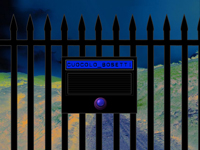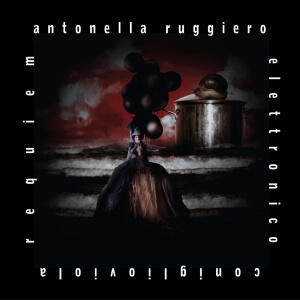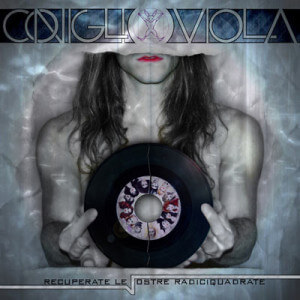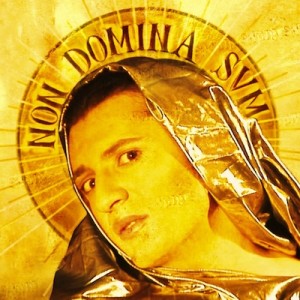secret.room (net drama)
Computer is your secret.room // You are taking a random path to the secret.room // Don’t rebel: don’t interact // Browser is your director!
Note: secret-room does not work with recent browser. You need to download internet explorer 6 as standalone.
Secret.room (2004) is the first net.drama on the stage of The Violet Globe, fruit of the complicity between ConiglioViola and IRAA Theatre (Renato Cuocolo and Roberta Bosetti), the italian-australian company that has performed this work worldwide.
To net.dramatize “The Secret Room” (this is the title of the original piece) has been a paradoxical choice because it was already an interactive show.
Ten people meet every night in the house where Roberta lives. Roberta and her guests talk, tell each other stories and experiences. Then something unexpected happen. Dinner is interrupted and you are taken to the depth: to the secret room, to the room of the secrets: of the life, of the show.
Secret.room is composed with two main different moments:
- a long introduction where all happen is directed by the browser in a completely random logic
- the access to the secret.room where the secrets are unveiled
Interior sites: computer is your secret room
“The secret room” is the second episod of the trilogy “Interior sites project”. This idea of the room as interior space was very linked to our concept of web as a private imaginary space (that we already investigate with Yolanda’s Meditation). So what does it happen when the screen of one own’s computer is invaded by a wild storm of uncontrollable windows? What is the inter-actor’s reaction who sees denied one’s possibility to control?
Fragments: computer is your director
During the night when the VioletRabbit was Roberta’s guest it filmed all that happened. It divided all this video footage into many short fragments to which it has addes some appositely created animations obtaining a total of 45 tracks and finally it delivered each track to a different html page. Trough the simple succession of the page VioletRabbit’s intent was to recreate an idea of cinematographic editing. The difference is that the author of such an editing is not the programmer neither the user. Pages are refreshed every time in a completely random way both in their duration as in their sequence. The whole mechanism is then multiplied through a serie of popup windows that invade the screen and purpose alternative editings, different possible paths to cross the labyrinth.
Getting out from the labyrinth: secret.room’s gate
Mechanism hardly proves the machine. But there is one chance on 45 to get out from the labyrinth… and from panic. One of the pages delivers at last the access door that will take us to the secret.room, to the web site. We only have to ring the bell and see if Roberta will let us inside.
The Violet Globe project and net.dramas: net.art versus theatre
The Violet Globe is the laboratory where ConiglioViola performs an inedited crossbreed between theater and net.art.
The Violet Globe is the first web theater of the history, the unstable theater , the online stage on wich the various net.dramas will go on scene.
The fundamental idea consists in taking some theatrical representations and transforming them into net.artworks. The project is born from the assume that the surfer is an inter-actor and the monitor his personal stage. The experiment lies, so, in seeing what can happen to a text or a theatrical miseenscene when you add to the story a new actor whose behaviour does not follow any copycat and is not predictable. The result will be an open story, a deconstruction of the theatratical text as much as of the web text. The term net.drama – coined to indicate this “new genre” – means at the same time dramatical representation on the net but also unveiling of drama’s net, of drama’s trap
The interest and charm that this idea exercise on us is also related to ConiglioViola’s net.philosophy. Our online operations often consist in representing web spaces as real spaces. The slogan is: a web site is a site. In this case it will happen the exact opposite, we will translate real spaces (the ones of a theater) into html & C.
[…] Before revealing its contents, let us consider for a moment the subtle game staged by ConiglioViola. Intent on translating a theatre show into a “net.drama”, ConiglioViola carefully avoids the path of “augmented reality”, namely taking part in the real event via the internet. The group prefers to use the web to create a situation which reflects the original version of the show, but at the same time is closely bound to the language and dynamics of the web. In place of the concept of interactivity, which on the net means little more than clicking here and there in search of links, comes that of participation: suffered, sought after and obtained by the user amid delays and surprises. The real scene, filmed by ConiglioViola during its visit to Roberta’s “secret room”, is present in the video clips which appear in entirely random and ever variable order, making it impossible to reconstruct with clarity. The appointment mechanism generates expectations, but at the same time violates one of the web’s unwritten rules, that a visitor forced to return in order to gain access to content is a visitor lost. Everything is engineered so as not to grant us access to the secret room, or to ensure that visitors undergo a strict selection process (another violation of the web’s unwritten rules). Those who were undaunted by the flood of pop-ups, and patiently sought out the way into the “secret room”, turning up on time at the appointed hour, will not be surprised to discover that the secret room is nothing more than the site’s root, the page in which the project shows not its interface, but its structure. As happened to Neo, the lead character in The Matrix (1999), the sight of the code, a routine vision for all those who programme the net, becomes a cathartic experience for common users, destined to render them immune to the allure of the web.[…]
from“Alice makes Yoga” by Domenico Quaranta
In “Sono un pirata / Sono un signore” Silvana Editoriale 2009.


 Previous Post
Previous Post Next Post
Next Post


